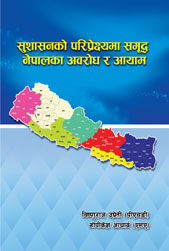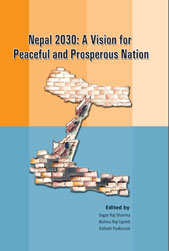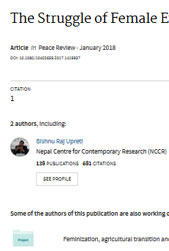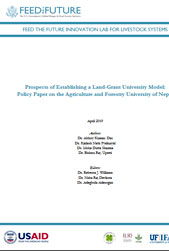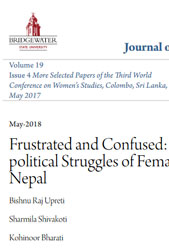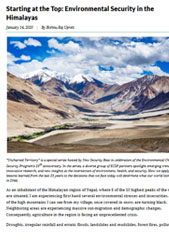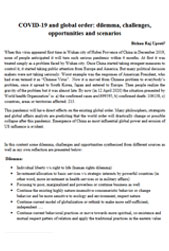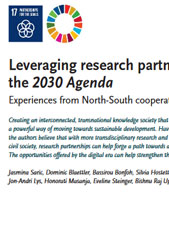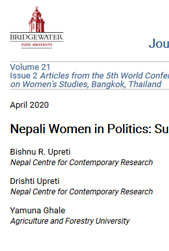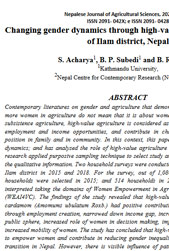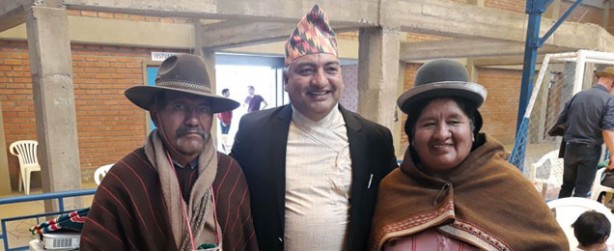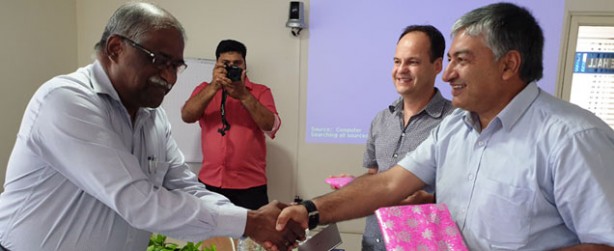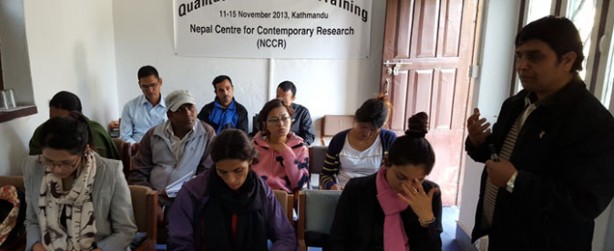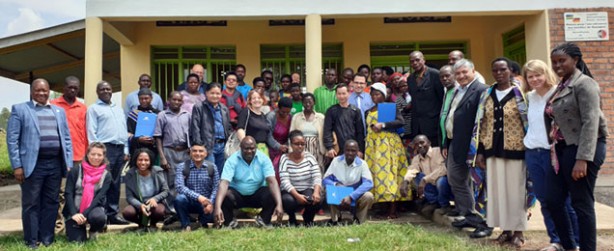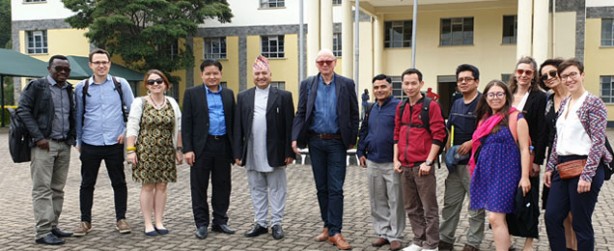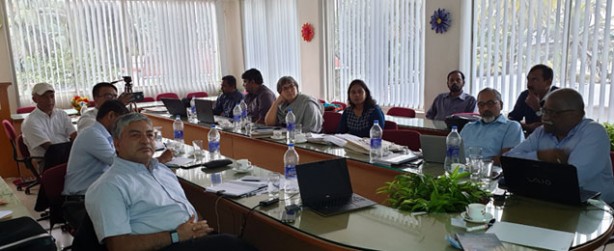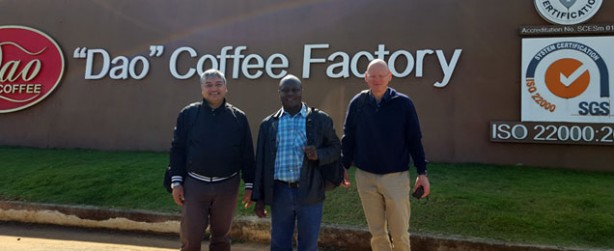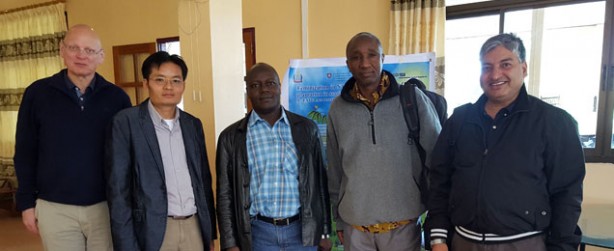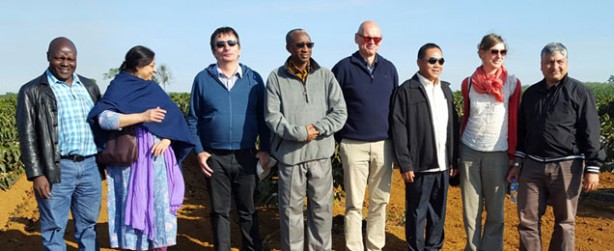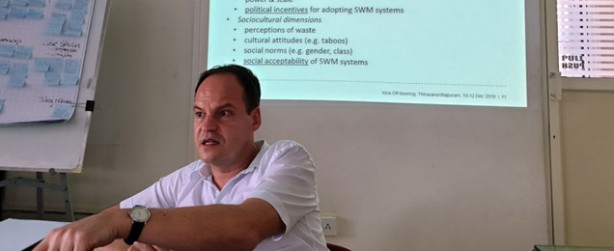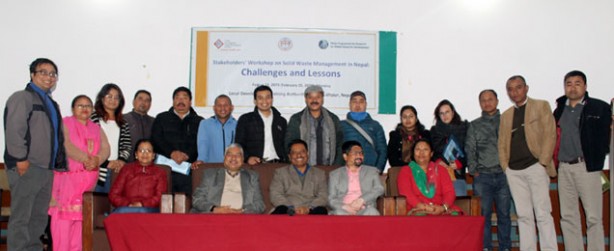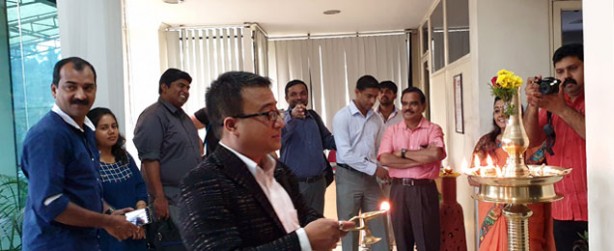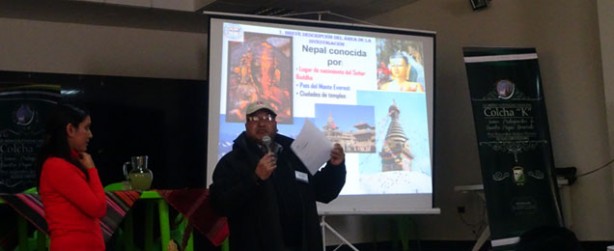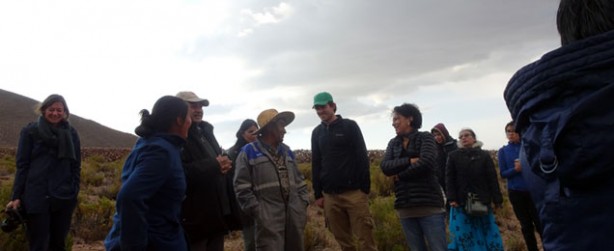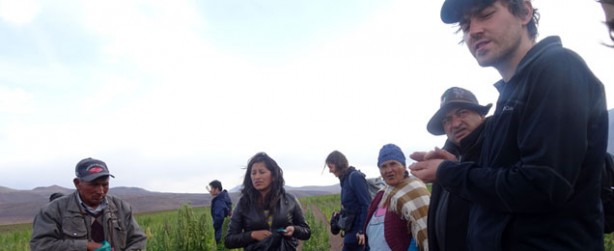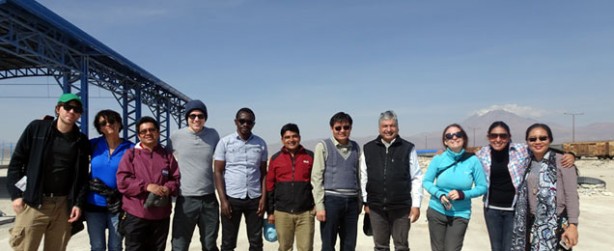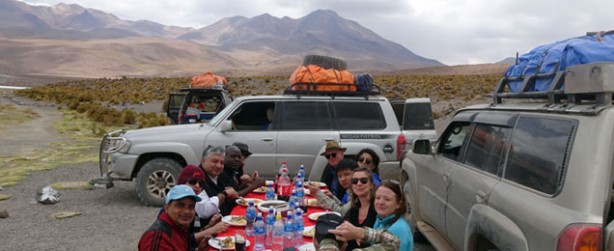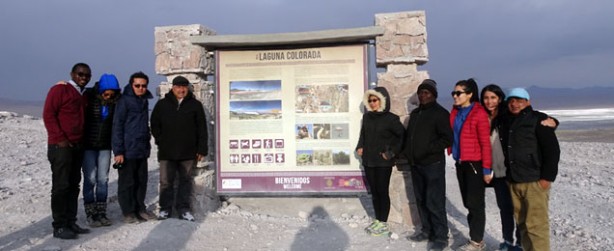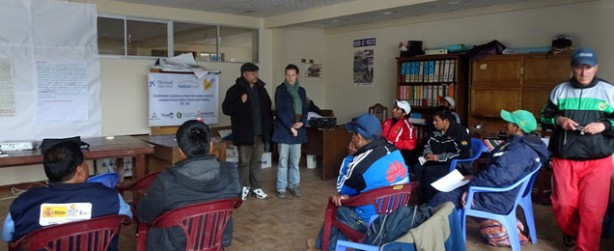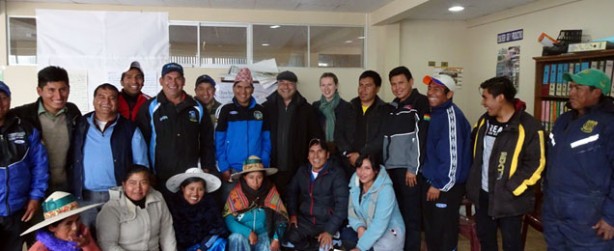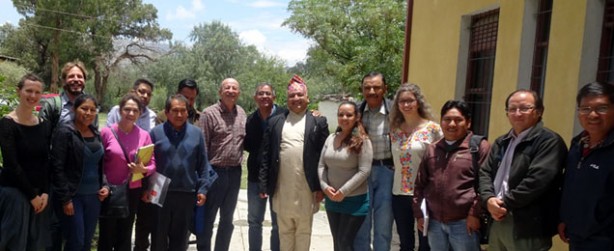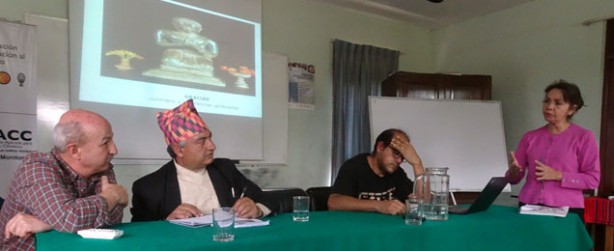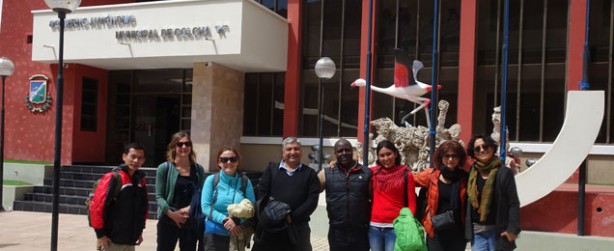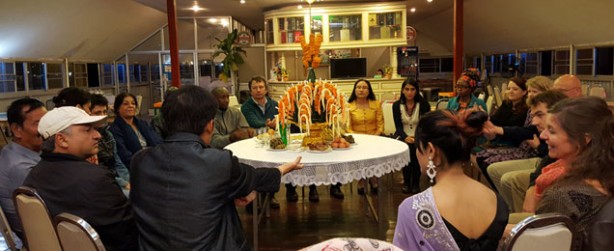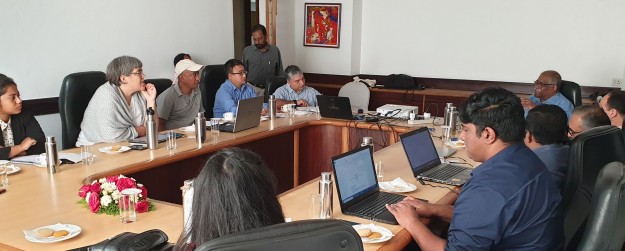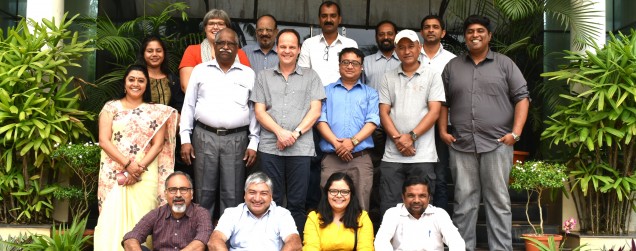NCCR has been involved in many successful research projects since its initial phase. It has excelled through research in conflict and peace, migration and livelihoods and various other disciplines. With this, it has successfully created conflict expertise in various research interests. The following includes the Research Projects carried out and being carried out by this Centre:
1. Challenges of municipal solid waste management: Learning from post-crisis governance initiatives in South Asia
Nepal Coordinator: Mrs. Yamuna Ghale
Research Team members: , Dr. Basu Subedi; Ms. Drishti Uprety, Ms Apsara KC, Mr. Amit Maharjan,
Collaboration: Centre for Integrated Urban Development (CIUD)
Brief Description: A Joint Multi-country research project called "Challenges of municipal solid waste management: Learning from post-crisis governance initiatives in South Asia" has been started from 1 November 2018. The Scientific collaborators of this project are a) University of Lausanne, Switzerland, b) Indian Institute of Management-Bombay, India; c) University of Colombo, Sri Lanka and d) Nepal Centre for Contemporary Research, Kathmandu, Nepal and policy partners are a) Centre for Environment and Development, Thiruvananthapuram, India; b) Janathakshan, Colombo, Sri Lanka, c) Centre for Integrated Urban Development, Kathmandu, Nepal.
The goal of this project is to identify, analyze and promote the political and sociocultural processes that are necessary to enable the functioning of MSWM systems and to assess the opportunities in MSWM governance to strengthen horizontal and downwards accountabilities in combination with localizing the material waste chain and rendering it more circular. To reach this aim, recent post-crisis governance initiatives in Kerala, Sri Lanka and Nepal will be systematically examined. The different SWM initiatives will be examined with a focus on political and sociocultural processes and evaluated in terms of their replicability in different contexts and of their potential for scaling-up. In this way, the project aims to contribute to global sustainable development, with a focus on its social and environmental dimensions. The general objectives of the project include:
-
To analyze the institutional architecture of waste governance, the waste chain and related socially differentiated labor practices, and accompanying discourses on waste and waste-work in three cities in Nepal, Sri Lanka and Kerala. Particular attention will be paid to selected recent post-crisis SWM initiatives that created stronger horizontal and downwards accountabilities and localized waste cycles and to the political and sociocultural processes at the household (including gender role), neighborhood and municipal levels that facilitated their development.
-
To facilitate mutual learning through horizontal South-South partnerships between local authorities, civil society actors and researchers across South Asia and through the organization of exchange visits, integrative forums, round table debate and the development of policy briefs, video logs and YouTube clips. The project will provide evidence to policymakers, practitioners, profit and non-profit organizations about alternative MSWM practices and systems, which have evolved endogenously in the wake of crises, and their appropriateness, feasibility and acceptability in particular political and sociocultural contexts. In turn, this will stimulate the discussion, the co-design and the experimentation of new MSWM approaches including those that imply stronger horizontal and downward accountability structures and more localized waste cycles.
-
To assess the potential for replicability and scaling-up of successful governance initiatives in order to promote environmentally sustainable, livelihoods-oriented, gender sensitive, politically and socially appropriate, feasible and acceptable MSWM systems with circular waste chains and economies based on the created knowledge on post-crisis SWM initiatives.
Website link: http://www.r4d.ch/modules/thematically-open-research/municipal-solid-waste-management
2. Research Project: Feminization, Agricultural transition and Rural Employment : Social and political conditions of asset building in Nepal (Ongoing)
Nepal Coordinator: Mrs. Yamuna Ghale
PhD Student: Ms. Sony KC, Sushant Acharya
Research Team members: Dr. Basu Subedi; Ms. Sharmila Shiwakoti, Ms Apsara KC, Mr. Amit Maharjan,
Masters Students: Ms Pragya Pokharel; Ms Supriya Gurung; Ms Richa Bhusal
Collaboration: Kathmandu University and Department of Agriculture
Brief Description: The "Feminisation, agricultural transition and rural employment: Social and political conditions of asset building in the context of export-led agriculture (FATE) is a 6 Years (2014 to 2020) Research programme funded by the Swiss National Science Foundation (SNSF) and Swiss Agency for Development and Cooperation (SDC) within the funding scheme ‘Research for Development (R4D)'. It is led by the Centre for Development and Environment (CDE) and the Interdisciplinary Centre for Gender Studies (IZfG) of the University of Bern, Switzerland. The FATE Project is implemented in Bolivia, Laos, Nepal and Rwanda from July 2014 and will complete in June 2020. The international project team consist of : Dr. Eliud Abucheli Birachi, International Center for Tropical Agriculture (CIAT), Kigali, Rwanda; Professor Dr Elizabeth Jimenez Zamora, Universidad Mayor de San Andrés-Postgrado en Ciencias del Desarrollo (CIDES-UMSA), La Paz, Bolivia; Dr Saithong Phommavong, National University of Laos (NUOL), Faculty of Social Sciences, Vientiane, Lao PDR, Dr Bishnu Raj Upreti, PhD; Nepal Centre for Contemporary Research (NCCR-Nepal), Kathmandu, Nepal; Prof. Dr Heinzpeter Znoj and Dr Sabin Bieri, University of Bern, Switzerland, Dr Sarah Cook, United Nations Research Institute for Social Development (UNRISD), Geneva, Switzerland. The Nepal Centre for Contemporary Research (NCCR) is the formal Nepal partner of the FATE.
Website link: http://www.fate.unibe.ch/
3. Women, Violence and Displacement in Myanmar and Nepal (Completed)
Nepal Coordinator: Dr. Bishnu Raj Upreti
Research Team Members: Dr. Basu Subedi, Ms. Drishti Upreti, Ms. Apsara KC, Ms. Kumud Bhurtel
Collaboration: University of Portsmouth Higher Education Corporation, IMC Worldwide limited
Brief Description: The project titled, "Narratives of violence: the impact of internal displacement on violence against women in Nepal and Myanmar", a multi-country study is an 18 month (September 2017- March 2019). The key aim of this project was to study the impact of internal displacement on the occurrence of violence against women in Myanmar and Nepal. The other aims include:
- To give voice to otherwise marginalized experiences of adapting to rapid change in fragile contexts. As part of this we will aim to create an online archive of women's life narratives and a quantitative (survey derived) database of related information on the age, gender, socio-economic profiles of those experiencing displacement and violence.
- To support the policy-practitioner community (through the generation of evidence) so that it can better promote the welfare and empowerment of different groups of women. The evidence will drive interventions grounded in women's own narratives of need and views of 'what works', further supported by quantitative data.
- To create and promote a South-South 'community of practice to share lessons and support in-country capacity building (see Pathways to Impact).
The general objectives of the project include:
- To take an innovative mixed method approach, combining qualitative narrative methods with a quantitative survey in order to understand if/how/why women's experiences of violence have changed post-displacement, and how they might best be addressed.
- To understand the resources and strategies that displaced women could and do already draw on to build resilience against violence and poverty.
- To use these in-depth insights to bring women's concerns and challenges to the forefront of domestic and international policy, and to the programme-making communities in both countries.
4. Research Project: Private Sector in Peace Promotion (Completed)
Lead
Researcher(s): Dr Bishnu Raj Upreti, Dr Andrea Iff (swisspeace)
Involved Researcher(s): Safal
Ghimire, Rina Alluri and Rajya Laxmi Gurung
Brief Description: Through
comparison of case studies in South Asia, Central America and the Horn of
Africa, this research project seeks to improve our understanding of the
advantages, disadvantages and determinants of corporate engagement in peace
promotion, and to generate evidence-based recommendations for peace
practitioners considering partnerships with the private sector. This research
is being conducted jointly by swisspeace/University
of Basel and South Asia Office of the NCCR North-South (hosted
by NCCR) with the funding obtained from Swiss National Science Foundation and Swiss Agency for Development Co-operation.
5. Research
Project: Role of Youths in Livelihood Security and Peace in South Asia (Completed)
Lead
Researcher(s): Dr.
Bishnu Raj Upreti
Involved Researcher(s): Suman
Babu Paudel, Gopikesh Acharya
Brief Description: Livelihood is an overarching theme of NCCR research in South Asia.
The role of urban youth is becoming instrumental in any social, political,
economic and environmental affairs. Therefore, combining these three
dimensions, peace, livelihood security and urban youth provide fundamentally
important opportunities for NCCR to enhance visibility, expand partnership and
engage in new areas of research. The following sites are selected by
considering the representation, interests of the local collaborators for
assistance: Kathmandu/Nepal (Youth and Peace), Male/the Maldives (Youths' Role
in Climate Change Mitigation), Mumbai-India (Youths and Alternative Livelihoods
Generation), Colombo/Sri Lanka (Youth and Peace), Thimpu-Bhutan (Youth and
Resource-based Social Disputes). This research is internally financed from the
core budget of South Asia Regional Coordination Office of NCCR North-South.
6. Research
Project: Livelihoods, Basic Services and Social Protection in Post-conflict
Nepal (Completed)
Lead
Researcher(s): Dr Bishnu Raj Upreti
Involved Researcher(s): Dr Purna
Bahadur Nepali, Dr Anita Ghimire, Sony KC, Suman Babu Paudel and Gopikesh Acharya, Gitta Shrestha
Brief Description: This
research is being conducted under the joint venture with Secure Livelihoods Research Consortium (SLRC) of Overseas
Development Institute (ODI) London. SLRC is focused on generating
high quality research on services, livelihoods and social protection in
conflict affected situations. The evidences on livelihoods, basic services and
social protection in the conflict affected areas remains patchy in Nepal.
NCCR’s research focus is to explore on people’s experience, perceptions and
expectations in regards to the state’s service delivery mechanism. NCCR will
look into the areas of social protection (old age allowance) and education
(primary education). The research sites are Rolpa and Bardiya districts for
household longitudinal survey and overall country will be studied on basic
service and social protection, international actors and their contribution
through aids in local level governance. To know more about SLRC, its partners
and research mechanism, click here.
7. Research
Project: Making Women Count for Peace: Gender, Empowerment and Conflict in
South Asia (Completed)
Lead
Researcher(s): Dr Bishnu
Raj Upreti
Involved Researcher(s): Ms Gitta Shrestha
Brief Description: This
research, being jointly conducted with Peace Research Institute Oslo
(PRIO), intends to address the role of women in local governance and
politics, particularly within the context of peace and security processes. The
goal is to investigate what women’s empowerment might mean in a post-conflict
setting with heavy multilateral and international involvement in Nepal. The
proposed research plans to approach this question by studying- how gendered
political power is transformed in conflict, assuming that differences in the
forms and expressions of gendered power relations during and after conflict,
impact on how ‘empowerment’ might be achieved. By contextualizing and tracing
manifestations of gendered political power in conflict as well as post-conflict
settings, the proposed research is an effort to contribute new knowledge on
processes of ‘disempowerment’ and ‘empowerment’ in conflict and peace building.
8. Research
Project: Contested Rural Development (Completed)
Lead
Researcher(s): Prof Dr Ulrike Müller-Böker, Prof Dr Urs Geiser, Dr
Prabin Manandhar, Dr R Ramakumar
Involved Researcher(s): Mahendra
Sapkota
Brief Description: Despite concerted efforts towards development by state agencies,
donors, NGOs, and the private sector, the rural poor in many developing
countries continue to have difficulty gaining access to crucial livelihood
means like natural resources, markets, and employment. Indeed, the recent
emergence of various people’s movements that challenge states’ legitimacy may
hint at popular dissatisfaction with mainstream development models and with the
institutions charged with implementing them. This research project examines
alternative visions of development as suggested by various grassroots movements
that critique state-sanctioned development models and claim to offer solutions
for improving rural people’s access to livelihood means. Case studies in India,
Pakistan and Sri Lanka focus on such protest movements, while case studies in
Nepal and Bolivia address groups that have already gained considerable policy
influence. This research is being conducted in coordination of South
Asia Office of the NCCR North-South (hosted
by NCCR) with the funding obtained from Swiss
National Science Foundation and Swiss Agency for Development Co-operation, and is
managed by Development Study Group, Department of Geography, University of
Zurich.
9. Research
Project: Livelihood Futures (Completed)
Lead
Researcher(s): Prof Dr Ulrike Müller-Böker, Dr Babar Shahbaz, Dr Sagar Raj Sharma
Involved Researcher(s): Nirmal
Kumar BK
Brief Description: Studying
resource-scarce areas in South Asia and East Africa, this research project
seeks to identify new livelihood strategies for groups vulnerable to exclusion,
particularly strategies that diminish reliance on natural resources. Special
attention is given to the governing institutional context in order to reveal
ways of supporting equity-effective institutions. This research is being
conducted in coordination of South Asia Office of the NCCR North-South (hosted by NCCR) with the funding obtained from Swiss
National Science Foundation and Swiss Agency for Development Co-operation, and is
managed by Development Study Group, Department of Geography, University
of Zurich.
10. Research
Project: Migration, Knowledge, and Development (Completed)
Lead
Researcher(s): Prof Dr Ulrike Müller-Böker, Dr Susan Thieme, Dr Anita
Ghimire
Involved Researcher(s): Drawing
on various case studies that reflect the heterogeneity of migration – in South
Asia, Central Asia and Switzerland – this research project aims to achieve a
more differentiated understanding of the relationship between migration and
development, particularly regarding circulation of knowledge and skills, as
well as to generate evidence-based recommendations for supporting migrants’
ability to effect positive change. This research is being conducted in
coordination of South Asia Office of the NCCR North-South (hosted by NCCR) with the funding obtained from Swiss
National Science Foundation and Swiss Agency for Development Co-operation, and
is managed by Development Study Group,
Department of Geography, University of Zurich.
11. Research
Project: Climate Security and Conflict in South Asia (Completed)
Lead
Researcher(s): Dr Bishnu Raj Upreti
Involved Researcher(s): Kiran
Maharjan
Brief Description: This
research looks at the impact of climate change in selected South Asian
countries with special focus on unconventional security and consequent
conflicts in South Asia. This research is internally financed from
the core budget of South Asia Regional Coordination Office of NCCR North-South.
12. Research
Project: The Landscape of Democracy and Local Governance (Completed)
Researcher(s): Dr Bishnu
Raj Upreti, Mr Tulasi Sharan Sigdel
Brief Description: This
research is focused on the practice of local governance in remote Nepali
villages and measurement of such practices under the principles of
democracy. This research is internally financed from the core
budget of South Asia Regional Coordination Office of NCCR North-South.
13. Research
Project: Small Arms and Post-conflict Security (Completed)
Researcher(s): Dr Bishnu
Raj Upreti, Safal Ghimire
Brief Description: Under this research, the issues of small arms proliferations,
reasons behind it, its impact in local and national peace in the aftermath of
civil-war in Nepal are being explored. This research is internally
financed from the core budget of South Asia Regional Coordination
Office of NCCR North-South.
14. Research
Project: Peace Process and Conflict in Nepal (Completed)
Researcher(s): Dr Bishnu
Raj Upreti, Safal Ghimire
Brief Description: It looks
at the dimensions of peace process, experiences and lessons learnt in context
of Nepal after the Comprehensive Peace Agreement-2006. This research is
internally financed from the core budget of South Asia Regional
Coordination Office of NCCR North-South.
15. Research
Project: Post-conflict Statebuilding in Nepal (Completed)
Researcher(s): Dr Bishnu
Raj Upreti, Safal Ghimire
Brief Description: It
explores the possibilities and challenges to Nepal as a post-conflict country
to remain politically stable, economically prosperous and social peaceful.
Several other renowned researchers are also involved in different topics under
this project. This research is internally financed from the core
budget of South Asia Regional Coordination Office of NCCR North-South.
16. Research Project: Transforming the Lives of Girls and Young
Women (Completed)
Lead Researcher(s): Dr Anita Ghimire
Involved Researcher(s): Rewati Gurung and Prajesh Dhungana
Brief Description: This project aims to uncover the pivotal role played by
discriminatory social institutions in depriving adolescent girls and young
women of the opportunity to achieve their full potential. The project
looks at how selected capabilities of these adolescent girls are affected by
formal and informal institutions. The goal is to help in improving development
outcomes for adolescent girls and young women (with a
focus on the poorest and hardest to reach from a policy perspective), breaking
inter-generational poverty, and providing a catalyst for change, the returns of
which are expected to ripple through wider society. This research is undertaken
by Overseas Development
Institute (ODI) and funded by DFID. NCCR is a country partner for Nepal for this
research.
17. Research Project: Women's Peace: Gender Equality, Peace and Security in Nepal and Myanmar (Completed)
Team Leader : Dr. Bishnu Raj Upreti
PhD Student : Mr. Devendra Adhikari
Research Team Members : Dr. Deepak Bhatta ; Ms Sharmila Shiwakoti ; Ms Apsara KC
Brief Description: WOMENsPEACE is a 3 Years project (February 2016-January 2019) focuses on the gender dimension of disarmament, demobilization and reintegration (DDR) processes in Nepal and Myanmar, and the post-conflict political participation of female and male ex-combatants. In short, this project investigates the consequences of DDR processes for post-conflict gender equality, women and men's social inclusion and women's rights. It is funded by the Research Council of Norway's NORGLOBAL program and managed by Peace research Institute Oslo. The institutional partners are Nepal Centre for Contemporary Research (NCCR) in Nepal and AR YONE OO-Social Development Association in Myanmar. The core research team composed of Dr Wenche Iren Hauge (Senior Researcher) and Dr Ashild Kolas (Research Professor) from PRIO; Dr Bishnu Raj Upreti (senior Researcher) from NCCR and Mr. Cin Khan Lian (Senior Researcher) from AR YONE OO-Social Development Association, Myanmar. In Nepal NCCR is collaborating with School of Education of Kathmandu University (KUSoED) to implement the PhD research. Mr Devendra Adhikari is PhD student at (KUSoED), who will work specifically on the reintegration of female ex-combatants in Nepal

